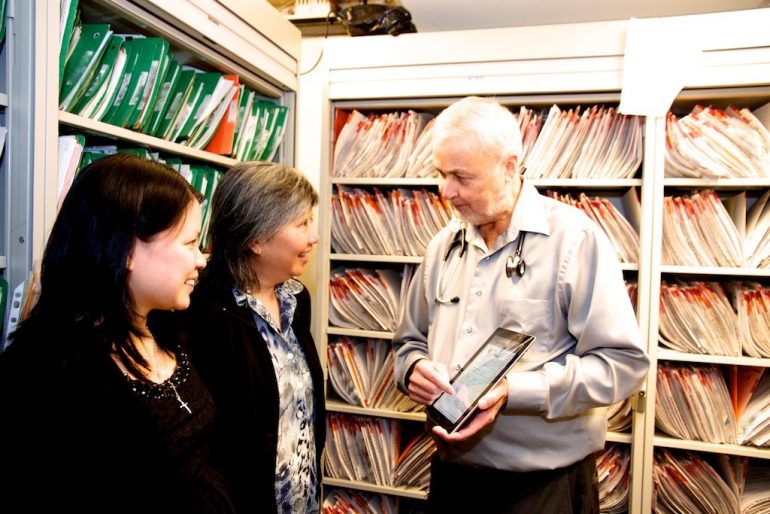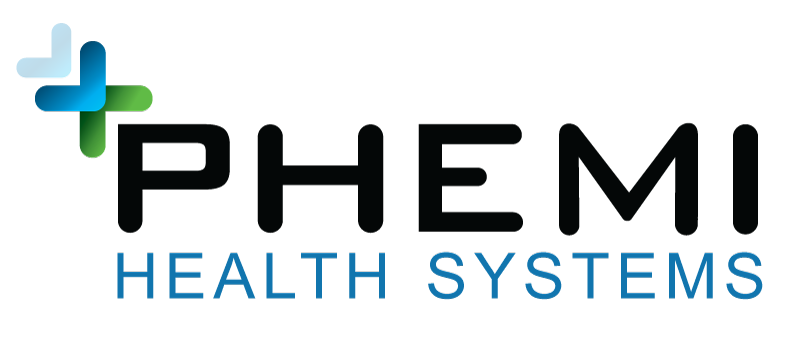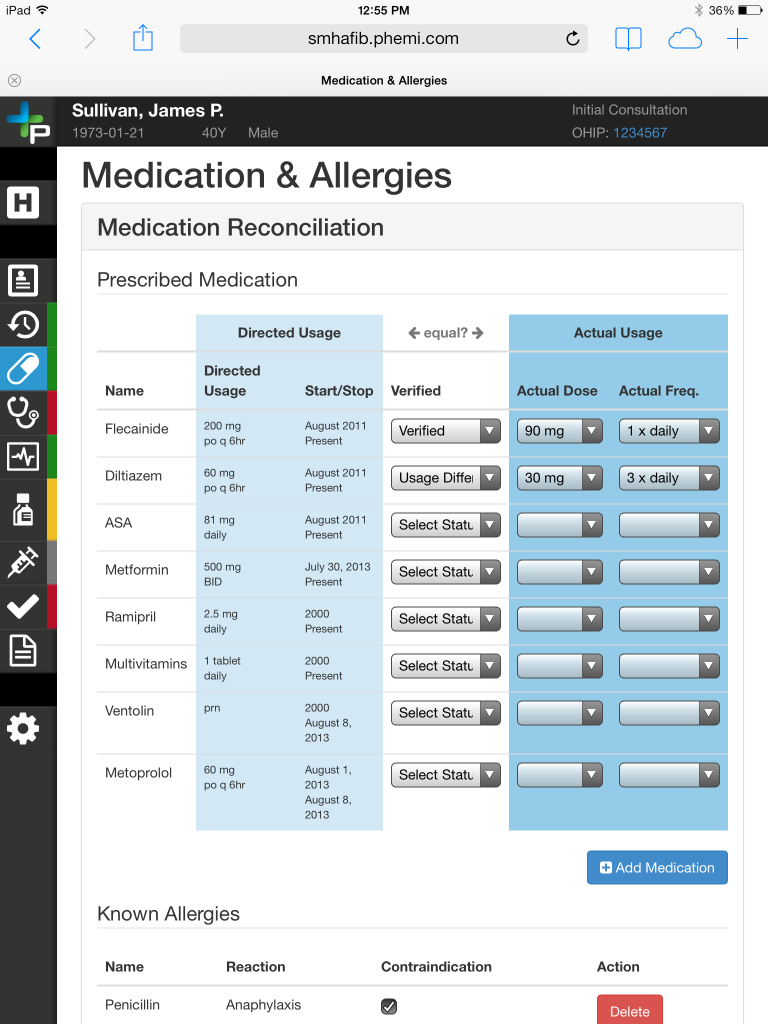Technology is not the health care system’s silver bullet, but individuals choosing to live healthier is. Believing in collective behavioural change on a mass scale is the rose-coloured view unfortunately.
However, Vancouver startup PHEMI is introducing a new technology platform that’s firmly putting the patient at the centre of the healthcare universe. This is technology aimed at breaking down silos and driving towards better patient outcomes.
Combining a world class technologist, with a world class cardiologist and a world class big data processing platform, the PHEMI platform has recently been launched as a pilot program at Vancouver’s St. Paul’s Hospital. This could be a key step towards fixing some of what’s ailing healthcare systems throughout the industrialized economies.
The PHEMI platform works with hospital EMRs, databases, and information systems. It’s connecting care pathways and enabling evidence-based decision support. Patient information gathered at the point of care helps inform population health research, clinical trial recruitment, post-market surveillance, knowledge translation research programs, policy interventions and basic science programs.
Dr. Paul Terry PHEMI’s President and CEO has an admirable record of success. He was the CTO and cofounder of both OctigaBay Systems (acquired by Cray Inc, a world leader in supercomputing), and Abatis Systems (acquired by Redback Networks in one of the largest technology acquisitions in Canadian history).
The other cofounder is Dr. Alan Rabinowitz, the director of the coronary care unit at St Paul’s Hospital. Rabinowitz recognized the critical importance of disruptive data solutions in transforming healthcare, and his drive to help co-found PHEMI is about enhancing patient care, research and innovation, and improving the sustainability of our healthcare ecosystem.
Processing big data is a significant part of the platform. To help researchers analyze data as fast as they can think, PHEMI recently signed an agreement to work with SAP. The speed of SAP HANA and the privacy infrastructure of PHEMI will allow healthcare professionals to analyze vast amounts of data. PHEMI is the first company to build the Privacy by Design Principals into its products to guarantee the privacy of sensitive patient information.
Faster performance means more intuitive research, more insights and more innovation. It also means more personalized medicine.
Dinesh Sharma, a VP at SAP shared that “technology alone can’t solve everyone’s problems. For us, healthcare is not one of our core competencies. It’s about giving core technology breakthroughs to people who understand what’s required in that last mile. We’re essentially devolving last mile innovation, believing this will create more uses for the technology. This why working with PHEMI is such an easy choice.”
Rabinowitz explained that “in a non-virtual world, the system is set up around the needs of the system, not the needs of the patient. But it’s not about just applying technology to medical things. Actually it’s how one redefines medicine, because in very real a sense it’s essentially a data science. How do you bring the deep insights from both points of view to make it work?”
For the doctor, the quality of data matters most. Groups have to think about their data points, so noise is eliminated before before the technology solution is applied.”
Genomics is opening up the push towards real personalized medicine and Terry said we’re enabling this and eventually the world will move here. “But other things such as your lifestyle, what you’ve been eating, and how much you’ve been moving, still matter as much anything else.”
Terry sees real future value around having personal genomic information. He points out that, “right now HIV clinicians for example can prescribe medication based it a sequence. In the case of inherited arrhythmia it’s possible to see genetic predispositions certain issues and treat people more effectively. The good news is, that computers can process these massive volumes of information and do the heavy lifting to inform the clinician to make something happen. The clinician is the human face, is the point of care. Point of care is still the most important part of medicine, and it’s about giving professionals better ‘tools & information’ to interact with the patient then the whole process improves. Costs go down, and the value goes up.”
SAP’s Sharma sums up things well by offering, “health care has to be viewed as potentially creating a solvency issue. We see that 60 percent of the worlds GDP flows through some SAP system. We understand big numbers. But looking at health care and the impact it has, and when we start seeing it having a negative effect on countries’ economies, we see it’s impact on business, and it’s impacts people… it’s all interconnected. Fixing healthcare is in everyone’s best interest.”
Maybe when it comes to our improving our health care system as individuals we should be mindful of the Stanislaw Jerzy Lec quote, “no snowflake in an avalanche ever feels responsible.”




